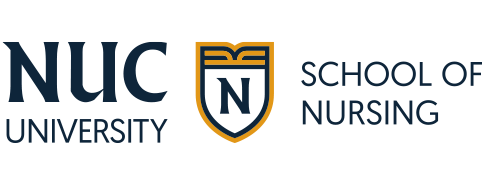Across the United States, a significant shortage of registered nurses (RNs) and licensed practical nurses (LPNs) has led to a growing demand for knowledgeable nursing professionals. According to the U.S. Bureau of Labor Statistics (BLS), the job outlook for registered nurses alone is projected to grow 6% between 2023 and 2033, with an average of more than 197,000 job openings per year.
Despite this increased demand for nurses, the fact remains that nurses need to possess a range of hard and soft skills to do their jobs well. Whether you aspire to work in a hospital setting, in a physician’s office, or anywhere in between, employers are generally seeking the same essential nursing skills.
1. Clinical Proficiency and Medical Knowledge
First and foremost, nurses at all levels must have a solid foundation of medical knowledge and clinical proficiency.
Importance of Strong Clinical Skills
Foundational skills and clinical knowledge are crucial for providing patients with the best quality of care and making decisions in their best interest. Knowing how to provide safe and effective patient care allows nurses to improve overall patient safety, enhance patient outcomes, and optimize the use of resources in their workplaces.
Examples of Clinical Skills
Though this is by no means an exhaustive list, some examples of the kinds of clinical skills nurses may be expected to have on the job include:
- Administering medication
- Taking vital signs
- Coordinating care with other healthcare workers
- Medication management
- History-taking
- Physical examination
2. Communication Skills
Communication skills in nursing are critical as well — not only when communicating with patients but also with fellow nurses and other healthcare professionals.
Effective Patient Communication
Being able to communicate clearly and effectively with patients can help establish a sense of trust between nurses, patients, and patients’ families. When nurses take the time to communicate with patients, explain treatments, and answer questions, this also improves overall patient engagement and enhances the healthcare experience for all involved.
Interprofessional Communication
In addition to communicating with patients, nurses should be able to communicate clearly with other nurses and healthcare workers. Doing so can ensure that all workers are on the same page about a patient’s specific course of treatment or care plan, which can in turn reduce the risk of medical errors.
3. Empathy and Compassion
Think back to a pleasant interaction you’ve had with a nurse or other healthcare worker. More than likely, one of the aspects that make this interaction stand out as positive is the care and empathy the healthcare worker displayed. As you prepare to break into nursing roles, having a sincere sense of compassion and empathy for others can set you apart.
Creating a Supportive Patient Environment
It is not uncommon for nurses to come into contact with patients during some of the most difficult times of their lives. They may be battling a debilitating injury, severe illness, or other high-stress health crisis. By having empathetic and compassionate nurses, patients can receive the support they need during their most challenging times.
Improving Patient Satisfaction
In some cases, demonstrating empathy and compassion as a nurse could even improve patient satisfaction. When patients and their families feel supported and cared for by their healthcare teams, this can make all the difference in their overall experience.
4. Time Management and Organization
No two days are exactly alike when you work as a nurse, and it’s not uncommon to have to juggle many tasks or responsibilities at once. This is where time management for nurses can prove invaluable.
Prioritizing Patient Care
With the right time management skills, you can effectively prioritize the care and well-being of your patients while still handling other duties (such as administrative and clerical tasks) that may require your attention.
Maintaining Documentation
Organization is closely related and perhaps just as important as time management for nurses, especially when it comes to keeping your patients’ files updated for other healthcare workers to reference. Meanwhile, proper organization in handling documentation can help prevent errors and accidents that could lead to malpractice charges, which is why this is such a notable skill that employers look for in nursing job applicants.
5. Critical Thinking and Problem-Solving
Creative problem-solving and critical thinking in nursing is a must, too, particularly for those stressful situations when you may need to make important decisions with little time to spare.
Making Informed Decisions Quickly
When a patient is suffering from a medical emergency or another urgent situation arises, nurses often must make potentially life-or-death decisions without much time to think or weigh their options. This is why exercising critical thinking skills is essential in the nursing field.
6. Attention to Detail
Another key nursing career skill that aspiring nurses should focus on is a keen attention to detail.
Ensuring Accuracy in Patient Care
Being detail-oriented is crucial in the nursing profession for a variety of reasons. First, strong attention to detail in nursing can help to prevent mistakes (such as medication errors) that could prove disastrous to a patient’s health and well-being. In addition, accuracy in patient care ensures that patients receive the best possible treatment and can thereby improve their outcomes.
Vigilance in Monitoring Patient Status
Attention to detail in nursing is key to properly monitoring patients’ vital signs. A reading that is even slightly off could be indicative of a more serious problem, so nurses who are vigilant will be better able to care for patients if this occurs.
7. Adaptability and Resilience
Nurses often find themselves in high-stress situations on the job, so a sense of resilience and adaptability in nursing is also critical to long-term career success.
Handling Stress in High-Stakes Environments
Working in nursing sometimes means being subjected to high-stress situations and even making potentially life-or-death decisions for patients. Thus, this type of work can be stressful by nature, which is why nurses need to determine the best ways to handle and manage their own stress productively and effectively.
Building Resilience
Over time, nurses will build their resilience on the job as they are exposed to more high-stress situations and learn how to handle them. Becoming a resilient nurse can help you prepare for the inherent challenges of the career with greater confidence.
8. Technological Proficiency
With more healthcare facilities now using technologies like electronic health records (EHR), medical devices, and software, it is more essential than ever for nurses to become proficient in the use of these technologies.
Familiarity With Electronic Health Records (EHR)
Knowing how to update, manage, and navigate electronic health records is critical for nursing professionals. When used correctly, EHR can help healthcare workers provide the highest standard of care while staying up to date on any changes in a patient’s care plan.
Understanding Medical Devices and Software
More healthcare facilities are also beginning to use medical devices, including wearable devices, to track vital signs and other information remotely. Nurses entering the field, then, should familiarize themselves with these devices and how their software works.
9. Leadership and Teamwork
Additionally, successful nurses should have strong leadership and collaboration skills, especially if they wish to be considered for supervisory or other leadership roles at some point in their careers.
Collaboration with Healthcare Teams
Nurses frequently collaborate and work alongside other healthcare teams, including other nurses, physicians, and specialists. Teamwork in nursing helps these professionals work efficiently and productively together while staying on the same page and acting in patients’ best interests.
Stepping into Leadership Roles
Leadership skills for nurses are necessary namely for those interested in roles that involve leadership in healthcare. Specifically, these nurses should possess solid communication skills, the ability to motivate teams, and conflict resolution skills to keep teams working together in harmony.
10. Cultural Competence
Cultural competence in healthcare has become of paramount importance, particularly in terms of providing inclusive care to all patients regardless of their background.
Providing Inclusive Patient Care
Cultural sensitivity in nursing doesn’t necessarily require knowing everything there is to know about every culture. However, it does mean working under the assumption that one patient’s culture is often not identical to yours. With the right cultural competence, nurses can make conscious choices that help patients feel valued, seen, and properly cared for.
Training and Resources for Cultural Sensitivity
With more healthcare facilities offering training for cultural sensitivity, it is likely that future generations of nurses can more confidently provide the quality care that all patients deserve. For aspiring nurses wanting to get a head start on this way of thinking, the Department of Health and Human Services’ “Think Cultural Health” initiative can be an excellent starting point.
How to Develop and Showcase These Skills
We’ve established how nurses in today’s healthcare field need numerous hard and soft skills to do their jobs well. So, how can you go about developing these skills and demonstrating them to prospective employers?
Continuing Education and Certification
Don’t underestimate the value of a quality nursing education. Many nursing degree programs these days require coursework in critical areas such as leadership, communication, critical thinking, and other essential nursing skills.
Highlighting Skills in Job Applications and Interviews
When it comes time to start applying for jobs in the nursing field, you can underscore your skills by calling them out specifically in your resume. In job interviews, expect to be asked for specific examples of times when you had to apply certain skills in a clinical setting; by being prepared with these answers ahead of time, you’ll be able to respond with confidence and impress potential employers.
Ready to Learn More in a Nursing Program?
From communication and collaboration skills to cultural competence in healthcare and the ability to think critically, there are many nursing career skills today’s employers are looking for. While some of these can be developed and strengthened on the job, aspiring nurses will ideally enter the field with hard and soft skills acquired from a quality nursing program.
At Florida Technical College, we offer a number of career-focused nursing programs to help students prepare for the realities of working in this dynamic field. This includes our Associate of Science in Nursing and Bachelor of Science in Nursing degree programs, both of which are designed to help students develop their hard and soft skills to meet nursing job requirements.
Reach out to our team today to learn more about our nursing programs, or get started by filling out your online application for admission to the nursing program of your choice!
These examples are intended to serve only as a general guide of possible employment opportunities. There are many factors that determine the job an individual may obtain and Florida Technical College cannot guarantee its graduates any particular job. Some positions may require license or other certifications. We encourage you to research the requirements for the particular position you desire.
Sources
https://ftccollege.edu/program/bachelors-degree/science-nursing/
https://ftccollege.edu/program/diploma/associate-of-science-in-nursing/
https://ftccollege.edu/program/nursing-programs/
https://pubmed.ncbi.nlm.nih.gov/15227764/
https://thinkculturalhealth.hhs.gov/education/nurses
https://www.bls.gov/ooh/healthcare/registered-nurses.htm#tab-6
https://www.nso.com/Learning/Artifacts/Articles/Do-s-and-Don-ts-of-Documentation
https://www.hipaajournal.com/communication-in-nursing/




